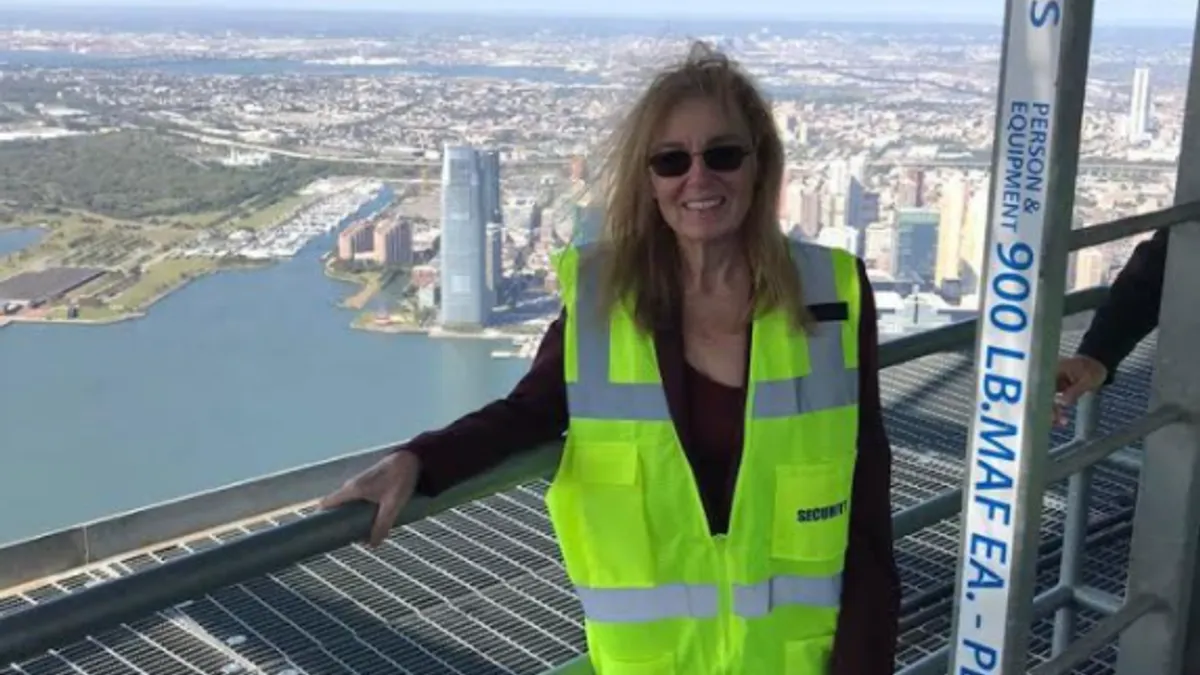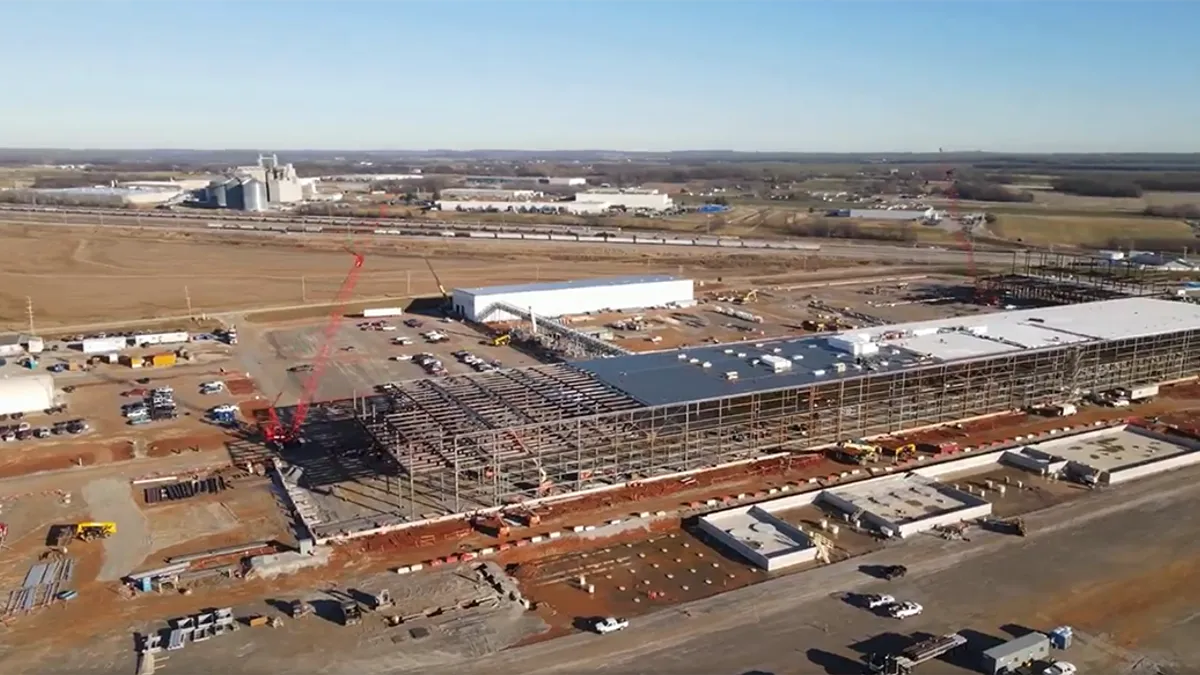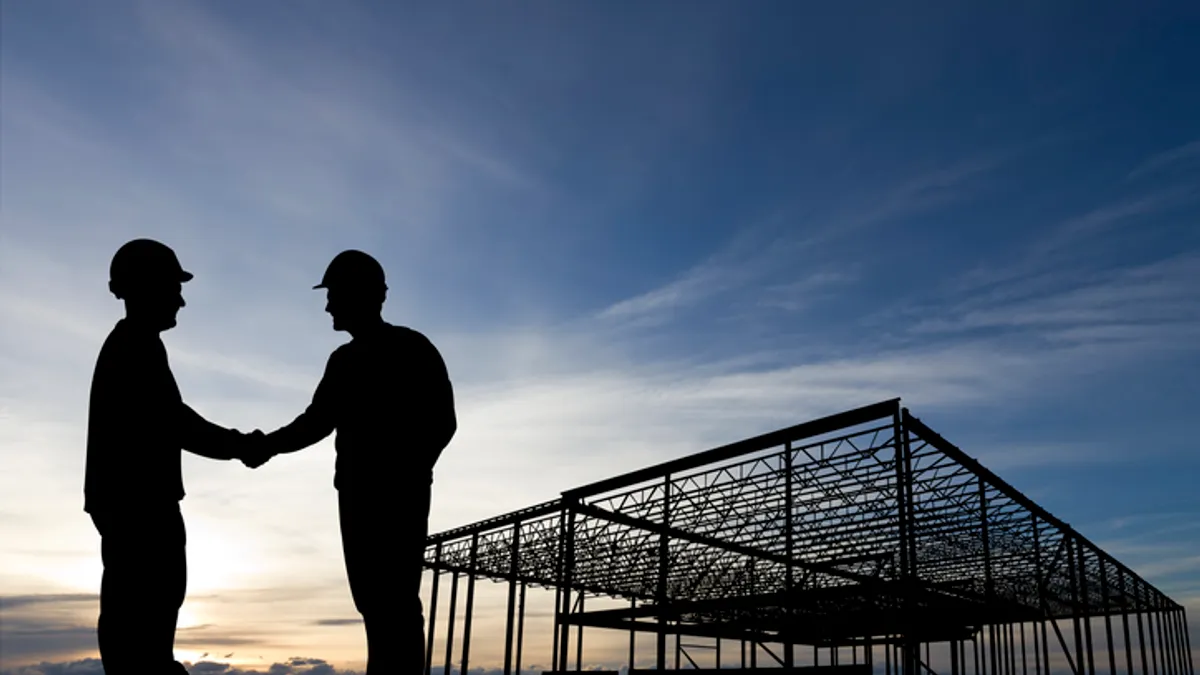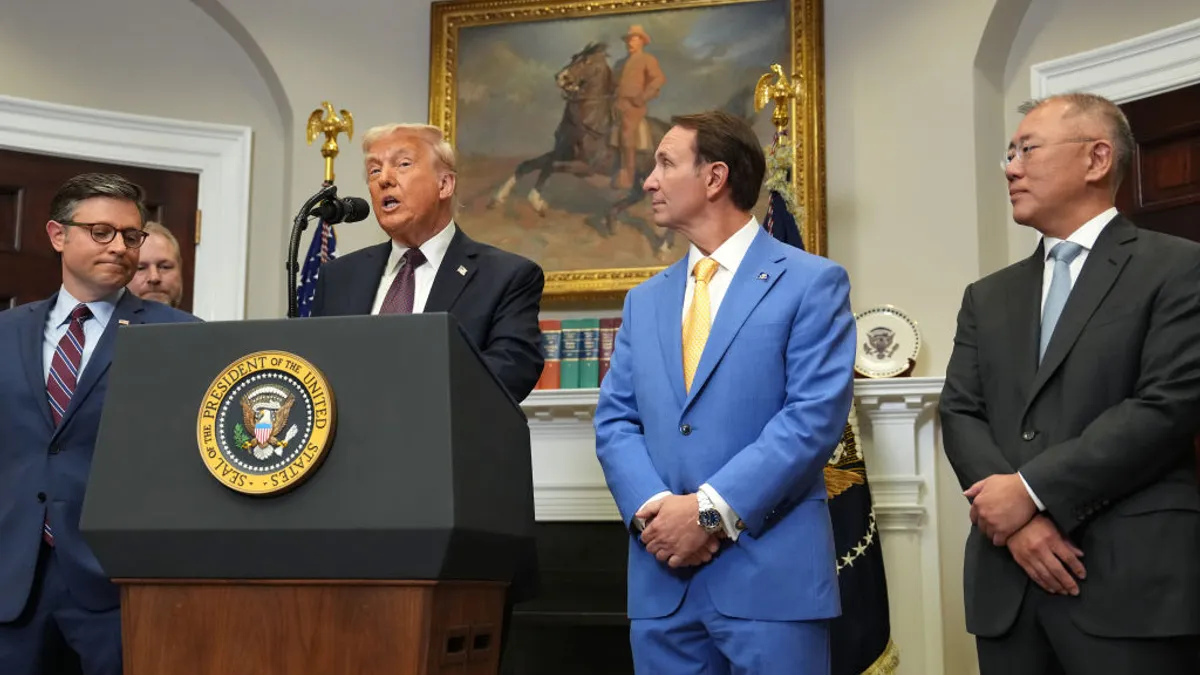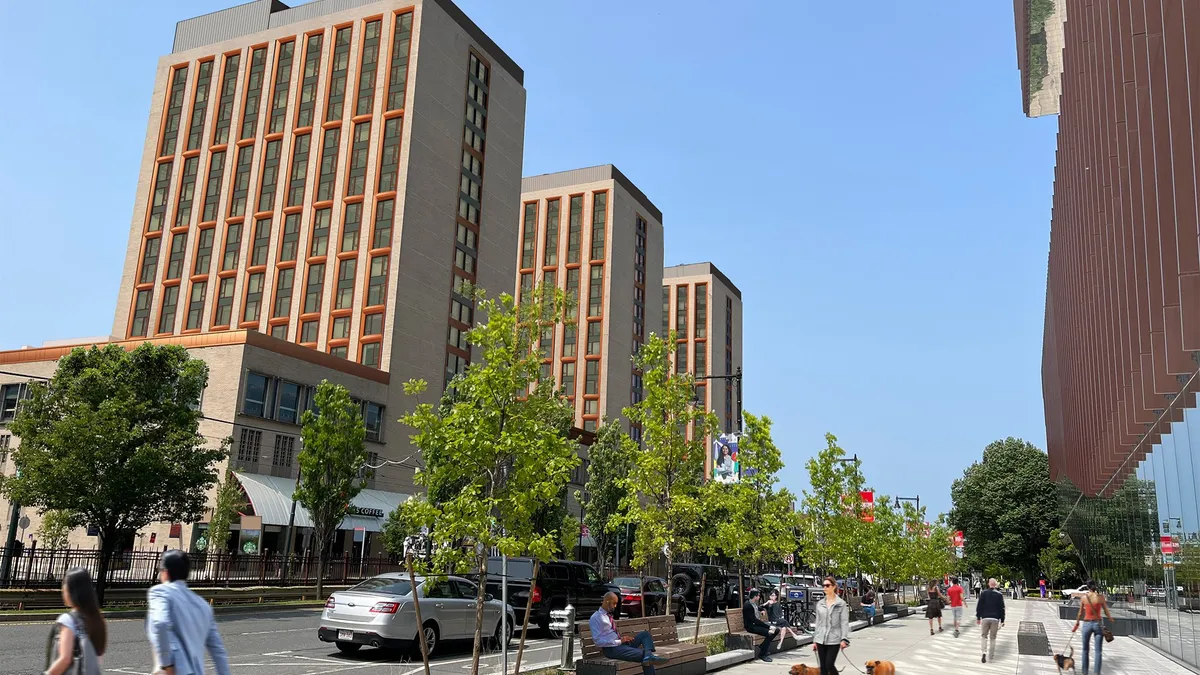This article is one in a series of conversations with women leaders in the construction industry. Click here for past conversations.
When Barbara Res began her career as an engineer in 1971, she was sometimes barred from entering construction sites because of her gender.
As one of only a handful of women in the field at the time, Res said she endured intimidation, sexual harassment and discrimination during her early years at work. In 1980 she was hired by The Trump Organization to work on development projects and as she rose through the ranks — eventually to the level of executive vice president — she found that the intimidation lessened.
She led the construction of Trump Tower when she was 31 years old, becoming the first woman to oversee a major New York City construction site. Other projects she helped manage included the Plaza Hotel, the Riverside South development, Citicorp Center and the Grand Hyatt Hotel.
Today, as an author and public speaker, she said construction is more open to women but she is still working to bring about more change in the industry. Here, she talks to Construction Dive about her experiences and what construction employers can do to attract and retain more female workers.
CONSTRUCTION DIVE: You have worked in the industry for decades. How has it changed in regards to the roles that women play?
BARBARA RES: Well, if you go back to when I started in 1971, there were basically no women in the industry. Only about 1% of practicing engineers were women. Now that is about 14% for both engineers and architects, a still pathetic number and the number in construction is even lower.
Back then, societal changes are what drove the changes. The women's movement forced us to recognize how few women were in many industries, especially construction. Groups started developing like the National Association of Women in Construction and they promoted women. The changes were not driven by the industry, and, for the most part, that remains the case. But women are slowly making gains.
What challenges have you faced in your career that you believe were related to your gender?
Discrimination, intimidation and sexual harassment — the big three I call them. First off, it was hard to get a job being female. When I was starting out, a woman's income could not be included in a mortgage application, which reflects the attitude society had about working women.
Once I was working, I encountered discrimination in that I was not allowed to participate in certain activities. I was not allowed to go to Russia with a group of estimators working on the Moscow World Trade Center because I was a woman. I was not allowed to work in a field office. People tried to intimidate me with their bellowing and size. The worst intimidation was having men accuse me of not being a woman or wanting to be a man.
The sexual harassment was rampant and, as with many victims, I blamed myself. Because there was no other women I had no one to talk to or mentor me. I was alone and under constant attack. Even well-meaning male colleagues inadvertently harassed me, like the structural engineer who complimented me by saying "If you pick up her skirt, you'll find a pair of balls."
There were so many. And it still goes on. There are laws and court precedents now that protect women but they are not always enforced. I still hear horror stories.
Why have you stuck with development and construction, despite these obstacles?
It was my chosen field and I was good at it. I liked the work. Other occupations were no bed of roses either. I might have been a lawyer, which also interested me. The “big three” were found in the field of law too, but not like construction.
It wasn't long that I rose in the ranks and when I became a vice president nine years later, things were not as bad, and I had developed a lot of self confidence. Jerks didn't mess with vice presidents. But don't think for a moment that I wasn't damaged and I wear the scars to this day.
What are the positive aspects of working in construction that young women today should know about?
The very best thing about working in construction, for anyone, is the ability to point to something and say, "I helped build that." There are not many professions that offer a perk like that.
For women, the first thing is practical. Construction jobs, in most markets, pay quite well, better than traditional "pink collar" jobs such as nursing or child care. Another thing is in construction, the parity of women's pay is much higher than the 78% it is overall.
Construction is hard work, and it is rewarding. In many cases, it is physical work and it helps women gain strength and maintain a healthy body. When you finish a day of construction work, you know that you did something.
Why do you think the number of women in construction is increasing?
The number of women in construction is increasing, but very slowly. The number of women in engineering schools peaked at 20% at the turn of the century and remains stuck there. But that is much greater than the 1% in 1972.
The number of women project managers is less than 10% and in the trades maybe 3% or 4% and that has been stagnant for over 40 years. I am concerned that the number is not growing much.
What changes would you like to see in order to help women be more supported in the industry?
Training is essential. The help of the trade unions, which are bound by laws that in the past have been avoided by saying women didn't want the jobs, but are now making real efforts to reach out. This should be codified. The government has a right to demand inclusion and I believe in quotas. I saw them work with minorities in the 80s.
Also, companies need to publish their interest in female workers and have job fairs. And set hiring guidelines. Especially in the trades where women are less than 5% of the workers.



